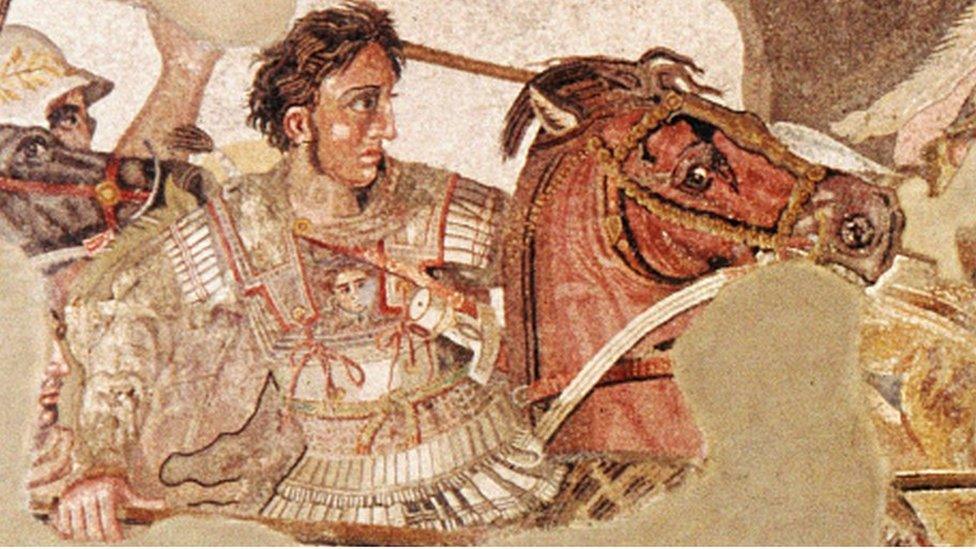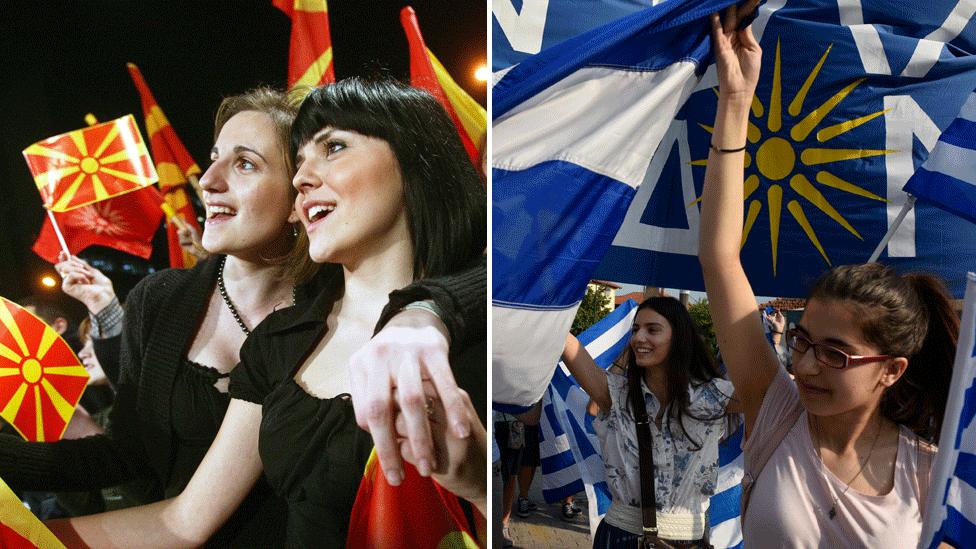Macedonia parliament votes to start name change process
- Published

Protests were held in both Greece and Macedonia earlier this year against a compromise on the name
Macedonia's parliament has voted to start the constitutional procedure formally changing the country's name to the Republic of North Macedonia.
Two-thirds of the chamber - 80 of 120 deputies - backed the start of the process, the requisite majority to start the move.
Several more votes will follow before the switch is confirmed.
In June, the country reached a deal with Greece on the name after 27 years of talks.
Greece had vetoed Macedonia's bids to join Nato and the European Union, fearing claims on its northern region of the same name.
The country said it would no longer block such moves if the name change went ahead.
Greece must also back the name change should Macedonia formally change its constitution.

Remarkable revival for a process on life support
By Guy Delaunay, BBC Balkans correspondent
This vote may not guarantee that Macedonia will eventually become North Macedonia. But it does go a long way to reversing the damage caused by last month's referendum.
More than 90% of those who voted then were in favour of the name change. But a successful boycott campaign kept the turnout well below the 50% threshold which would have made parliamentary votes a formality.
Now eight members of the party behind the boycott - VMRO-DPMNE - have joined forces with the governing coalition to create the two-thirds majority necessary to start the process of constitutional changes. A process which had been on life support now seems remarkably healthy.
It is not clear how the government brought the VMRO MPs on board. Numerous members are facing criminal charges from the party's increasingly corrupt decade in power.
The road to becoming North Macedonia still looks bumpy. There will be more votes in the coming weeks before constitutional changes can be confirmed - and the Greek parliament still has to ratify the deal.

Defence minister Panos Kammenos has vowed to withdraw his small right-wing party from the governing coalition in opposition.
Macedonia's Prime Minister Zoran Zaev had vowed to push ahead with the change after a referendum last month was rendered invalid owing to low turnout.
Contention over the name dates back to 1991, when Macedonia declared independence during the break-up of Yugoslavia.
The present-day country and the region in north Greece were both part of a Roman province called Macedonia.
Both claim the heritage of Alexander the Great.

Alexander the Great ruled over Greece and created a vast empire in the ancient world
Raw memories from Bulgaria's occupation of the Greek region and Yugoslav Macedonia in World War Two also play a role in the debate.
Greece's objections forced the UN to refer to the new country as "the former Yugoslav Republic of Macedonia".
Athens also vetoed Macedonia's attempt to join Nato in 2008 - and blocked its efforts at EU membership.
If the constitutional change is eventually approved and the country adds the word "north", Macedonia could see those ambitions realised.
- Published12 June 2018

- Published1 October 2018

- Published2 August 2017
